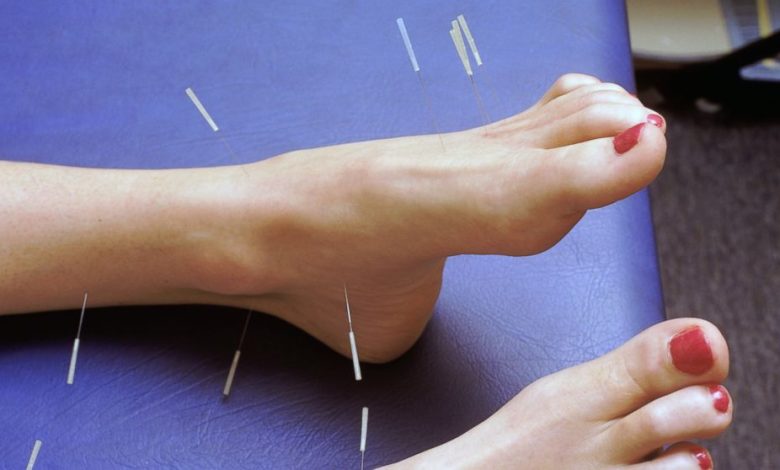Acupuncture for Stress Relief: How It Can Help Calm the Mind and Body

In today’s fast-paced world, stress has become a common part of daily life. The demands of work, family, and personal obligations often leave individuals feeling overwhelmed, anxious, and fatigued. Chronic stress can take a toll on both the mind and body, leading to a variety of physical and mental health problems such as insomnia, digestive issues, high blood pressure, and even depression. While many turn to medications or other treatments to manage stress, Acupuncture offers a natural and effective alternative. Rooted in Traditional Chinese Medicine (TCM), acupuncture can help restore balance, calm the mind, and alleviate the physical symptoms of stress. This article explores how acupuncture works to relieve stress, its benefits, and how it can improve overall well-being.
What Is Acupuncture?
Acupuncture is an ancient healing practice that involves inserting thin, sterile needles into specific points on the body, known as acupoints. According to Traditional Chinese Medicine (TCM), the body is a network of energy pathways, or meridians, through which vital energy (Qi) flows. When the flow of Qi is disrupted or blocked, it can lead to illness, pain, and emotional imbalances.
Acupuncture aims to restore the smooth flow of Qi by stimulating acupoints, thus promoting healing and balance within the body. Although acupuncture originated in China over 2,000 years ago, it has since gained global recognition as an effective therapy for a wide range of conditions, including stress, anxiety, and emotional disorders.
How Does Acupuncture Help with Stress Relief?
Stress is often the result of a heightened “fight-or-flight” response, which triggers the release of stress hormones such as cortisol and adrenaline. These hormones prepare the body to respond to immediate threats, but prolonged exposure to high levels of stress hormones can lead to physical and mental exhaustion.
Acupuncture works to regulate the body’s response to stress by targeting the underlying causes of tension and anxiety. Here are some of the ways acupuncture can help relieve stress:
1. Regulating the Nervous System
One of the primary ways acupuncture helps with stress relief is by influencing the autonomic nervous system (ANS), which controls involuntary bodily functions like heart rate, digestion, and stress response. The ANS consists of the sympathetic nervous system (SNS), which governs the “fight-or-flight” response, and the parasympathetic nervous system (PNS), which is responsible for “rest and digest” functions.
Acupuncture stimulates specific acupoints that activate the parasympathetic nervous system, helping the body enter a state of relaxation. This shift from the sympathetic to the parasympathetic response reduces the production of stress hormones, allowing the body to calm down and recover from the effects of stress.
2. Boosting Endorphins
Endorphins are the body’s natural painkillers and mood enhancers. When acupuncture needles are inserted into certain acupoints, they stimulate the release of endorphins, which can help reduce pain, improve mood, and induce a sense of calm. The release of these “feel-good” chemicals helps counteract the effects of stress, leading to an overall feeling of relaxation and well-being.
3. Balancing Qi and Energy
In Traditional Chinese Medicine, stress is thought to disrupt the flow of Qi, leading to blockages or imbalances in the body’s energy pathways. Acupuncture works to restore the smooth flow of Qi, removing any blockages that may be contributing to stress and emotional tension. By promoting the balance of Qi, acupuncture helps the body regain equilibrium and alleviate the physical and emotional effects of stress.
4. Reducing Muscle Tension
Stress often manifests in the form of physical tension, especially in the neck, shoulders, and back. Prolonged muscle tension can exacerbate feelings of anxiety and stress. Acupuncture helps to relax tight muscles by stimulating acupoints that promote blood circulation and release tension. The relaxation of these muscle groups can help reduce physical discomfort, making it easier for the body to relax and recover from stress.
5. Improving Sleep Quality
Stress and anxiety often interfere with sleep, leading to insomnia or disrupted sleep patterns. Lack of sleep can, in turn, increase stress levels, creating a vicious cycle. Acupuncture has been shown to improve sleep quality by promoting relaxation and reducing the production of stress hormones. By helping the body enter a deeper state of relaxation, acupuncture can restore healthy sleep patterns and allow individuals to wake up feeling refreshed and rejuvenated.
Types of Stress Treated by Acupuncture
Acupuncture can be beneficial for individuals experiencing various types of stress, including:
1. Work-Related Stress
The pressures of deadlines, demanding projects, and long work hours can lead to significant stress and burnout. Acupuncture helps workers manage work-related stress by improving mental clarity, reducing anxiety, and promoting relaxation during and after stressful workdays.
2. Emotional Stress
Personal challenges, relationship difficulties, and emotional turmoil can trigger feelings of overwhelm, sadness, and anxiety. Acupuncture can help individuals regain emotional balance by reducing feelings of anxiety, depression, and emotional fatigue. By calming the nervous system and improving emotional well-being, acupuncture promotes resilience in the face of emotional stress.
3. Physical Stress
Chronic pain, illness, and physical discomfort can lead to stress and frustration. Acupuncture is often used to treat physical stress by alleviating pain, improving circulation, and restoring balance to the body. This physical relief can help reduce the mental strain caused by chronic pain or illness.
4. Social Stress
Social pressures, such as family responsibilities, financial worries, and societal expectations, can contribute to high levels of stress. Acupuncture helps individuals navigate social stress by promoting emotional relaxation and restoring a sense of inner peace. Acupuncture may also help individuals better manage social anxiety and improve their coping mechanisms in stressful situations.
Benefits of Acupuncture for Stress Relief
Acupuncture offers several benefits for individuals seeking to manage and reduce stress:
- Non-invasive: Acupuncture is a drug-free therapy that does not involve medications or surgery, making it a safe and natural alternative for stress relief.
- Personalized treatment: Acupuncture treatments are tailored to the individual’s unique needs, addressing both the physical and emotional aspects of stress.
- Improved well-being: In addition to reducing stress, acupuncture can enhance overall health and wellness, improving energy levels, immune function, and emotional resilience.
- Holistic approach: Acupuncture treats the whole person, not just the symptoms of stress. It addresses the root causes of stress and supports the body’s natural healing processes, promoting long-term well-being.
Conclusion
Acupuncture offers a natural and effective way to manage stress and promote overall well-being. By stimulating specific acupoints, acupuncture helps regulate the nervous system, balance Qi, reduce muscle tension, and enhance the body’s natural healing processes. Whether you’re dealing with work-related stress, emotional stress, or physical stress, acupuncture provides a holistic approach to achieving balance and tranquility. For those seeking relief from the physical and mental burdens of stress, acupuncture can be a valuable tool in restoring harmony to the mind and body.









